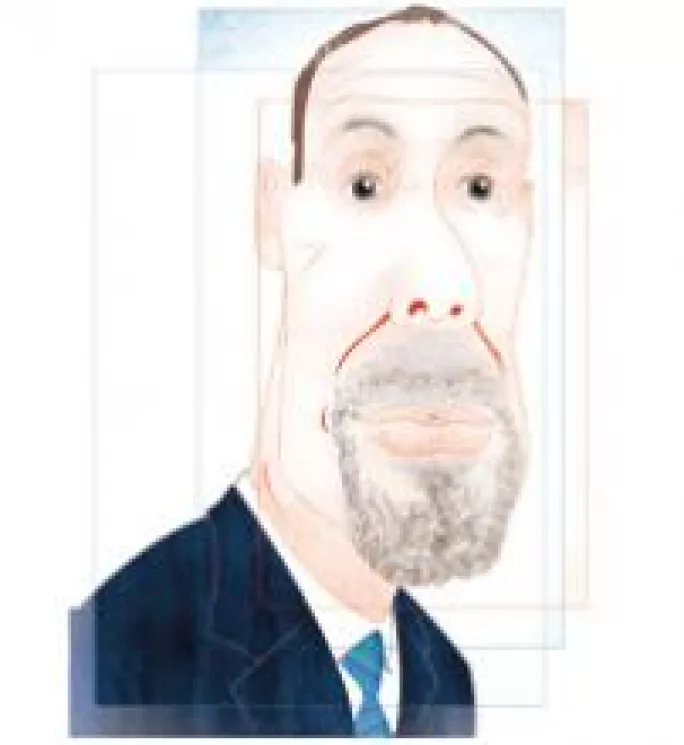‘Is it too much to hope that 2015 may see a let-up in the scatter-gun volley of reforms?’
Geoff Barton, headteacher of King Edward VI School in Bury St Edmunds, writes:
While a grateful nation was hanging out the bunting to celebrate the final episode of BBC’s Miranda, 2015 sloped in with its bulging knapsack of potential triumphs and disasters.
And there in the middle, shimmering (or gently steaming, depending on your point of view), was the inevitable prospect of the UK’s next general election. On 7 May, to be precise.
Only last weekend - in the Daily Mail, naturally - the prime minister was proclaiming that if he’s re-elected, there will be ‘new education reform’ within 50 days.
Thus the whirligig of political life shuffles ever onwards.
But, of course, new years always get us thinking about past years. So, in the tortuous run-up to the next election, let’s look back and see what’s changed since the last one.
What have we learned about education, politics and ourselves?
Looking back on those pre-election days of 2010 is like peeking at the scrubbed pastel images of childhood laid out in a Ladybird book. It’s as if we inhabited a different era. Were we really that young, that hopeful, that naïve?
Because little had prepared us for the seismic changes in education policy that were about to be unleashed on an unsuspecting education workforce.
The first hint was when the nauseating New Labour Department for Children, Skills and Families signage, all rainbows and cutesy children, was summarily dismantled, replaced by a starkly sans serif logo. The age of austerity had arrived.
And it was - as we would most definitely learn - symbolically no longer a Department ‘for’; the fuzzy ‘for’ was replaced by a functional ‘of’.
And thus began a scatter-gun volley of announcements and reforms. In less than five years, there is hardly an aspect of existing education policy or diktat that hasn’t been summarily scrapped or replaced. Added to which was the sense that the accelerating reform conveyor belt was being controlled by people who had never, in any real world, run anything, and who mistook hubris for impact.
Which leads us to a not-unreasonable question, one asked most recently in a blog by erstwhile special adviser at the Department of Education, Sam Freedman: “Have education standards risen over time?”
It’s a question that amid the frothy talk of standards, rigour and education funding, parents have a right to ask.
In response to his own question, Freedman cites Professor Robert Coe at Durham University, who says: “The best I think we can say is that overall there probably has not been much change.”
Which, if true, to reuse Elvis Presley’s memorable image, “is about as welcome as a turd in a punchbowl”.
Assessment guru Dylan Wiliam says politicians cannot help themselves from unleashing a “bewildering number of policy initiatives”. The impact? “The depressing reality is that the net effect of most of these measures on student achievement,” he says, “has been close to, if not actually, zero.”
So there’s a warning to whoever takes on the mantle of secretary of state in May this year. The job isn’t about you. It’s about us - students and teachers. It’s about education, not politicking.
Which brings to mind George Bernard Shaw’s observation a century ago: “He knows nothing; and he thinks he knows everything. That points clearly to a political career.”
That’s not to say that we don’t need good political leadership. We need it more than ever. We just don’t need another juggernaut of reform that distracts us from the only things that matter - getting more good people into the teaching profession, training them superbly, developing them into ever better teachers and making our country’s teaching the envy of the world.
It’s time, in other words, for dispassionate trust in the profession from politicians.
And in return, teachers and school leaders, with no one to blame for head-spinning policy distractions, must promise to demonstrate everything we have learnt about what makes great teaching. And we must attempt to guarantee it for every child from every background in every classroom in every school. There can be no excuses.
It would make a powerful and optimistic mission for the next five years.
Keep reading for just £1 per month
You've reached your limit of free articles this month. Subscribe for £1 per month for three months and get:
- Unlimited access to all Tes magazine content
- Exclusive subscriber-only stories
- Award-winning email newsletters




